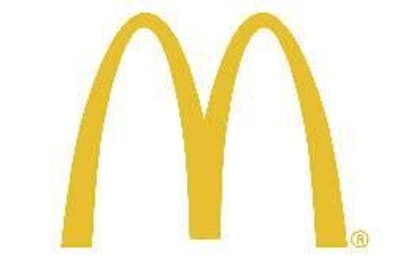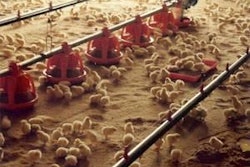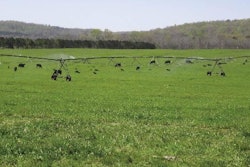
March, 2006- McDonald’s is the world’s largest quick service restaurant chain, and one of the world’s most recognizable brands. Because of the company’s size, visibility and success, McDonald’s has become a target for activist groups of almost every conceivable persuasion.
Every problem from childhood obesity to use of so-called “slave labor” in toy factories gets laid at the feet of the company, and each of these charges has the potential to damage McDonald’s most valuable asset, its brand image. McDonald’s has been working for decades to diffuse activist groups’ attacks and to keep any tarnish from adhering to the golden arches, but recently the company has decided to be more vocal about the initiatives that the restaurant chain and its suppliers have taken to be leaders in several sensitive areas.
McDonald’s Quality Symposium held in Oak Brook, Ill., is an example of the transparency that the company is pledging in its operations. This symposium gave McDonald’s a forum to present to the media its programs for working with suppliers to build all of the facets of quality into its products. For McDonald’s, a quality poultry supplier provides eggs or nuggets with taste, food safety and freshness built in, but it must also certify that animal welfare policies are followed and sound environmental practices are employed. In short, being a McDonald’s supplier isn’t just about making napkins, buns or breast patties anymore.
Bob Langert, McDonald’s senior director for social responsibility, explained that the hamburger business started getting a little more complicated back in the early 1980s. He said that at that time McDonald’s became a symbol for the “garbage crisis” and overflowing landfills, partly because of the company’s size and visibility but also because of the amount of packaging used on its products. McDonald’s made the decision to partner with the Environmental Defense Fund to develop ways to eliminate waste both at its restaurants and at its supplier companies. Langert said, “Prior to this, McDonald’s working with a NGO was thought to be like sleeping with the enemy.” But after McDonald’s experience working with the Environmental Defense Fund, the company adopted the strategy of partnering with non-governmental organizations (NGOs), supplier companies and franchisees to address areas of concern and seek solutions. In recognition of these efforts, McDonald’s has been selected to be part of the Dow Jones Sustainability Index.
McDonald’s working with a NGO was thought to be like sleeping with the enemy.” But after McDonald’s experience working with the Environmental Defense Fund, the company adopted the strategy of partnering with non-governmental organizations (NGOs), supplier companies and franchisees to address areas of concern and seek solutions. In recognition of these efforts, McDonald’s has been selected to be part of the Dow Jones Sustainability Index.
McDonald’s as agent of change
Activist groups have targeted McDonald’s partly because of its size, and because of its size McDonald’s can exert tremendous influence, not just on its suppliers but on entire markets. According to literature presented at the Quality Symposium, McDonald’s buys nearly 1 billion pounds of beef per year and nearly a half billion pounds of chicken. With the introduction of apple dippers, which can be substituted for French fries in a Happy Meal, McDonald’s became the largest retailer of fresh apples in the USA, selling 35 million pounds of the dippers in the first year. Michael Donahue, vice president of McDonald’s U.S. communications, described how the company can be an agent for change. “The economic bully pulpit of the McDonald’s system can affect the entire agriculture and worldwide food system,” Donahue said.
Several examples were provided of how McDonald’s buying power and influence have been used as an agent of change. Reverend David Schilling, program director of the Interfaith Center on Corporate Responsibility, had his first contact with McDonald’s as a representative of faith-based investors who filed a shareholder resolution asking the company to be more transparent with its code of conduct for its suppliers. McDonald’s adopted its first code of conduct in 1993, and it was updated in 1997. Ultimately, the shareholder resolution led to the Interfaith Center, which is interested in worker rights and justice, becoming involved in auditing McDonald’s suppliers.
If you are wondering why a group that is trying to rid the world of sweatshops and slave labor would have any interest in McDonald’s suppliers, then think Happy Meal toys. Schilling discussed how many of the toys are purchased from manufacturers in China and that working conditions in some factories in China have been appalling. He said that his group performed 1,550 social responsibility assessments of McDonald’s suppliers in 2004. In addition to these audits, the Interfaith Center also provides training for suppliers. Schilling said, “China is changing rapidly; one province, Guangdong, is growing very rapidly. Companies that follow the code of conduct are able to recruit better workers, and being a code of conduct factory is a business advantage.” Schilling went on to explain how he believes that respecting employees ultimately leads to higher product quality. “At the core of a company is the quality of a company’s relationships. Plants that don’t respect employees will not have good quality, and they won’t be consistently good suppliers,” he said.
John Buchanan works for Conservation International, an environmental group interested in conservation and biodiversity, and he discussed initiatives that his organization has going with McDonald’s and its suppliers. Buchanan said that Conservation International is “not looking to reinvent the supply chain, but it does want to bring light to sustainability and other environmental issues.” He said, “Conservation International wanted to develop a tool that would help suppliers measure how they are doing, so they have a pilot project for processing plants and an environmental scorecard.” The scorecard looks at things like solid waste, air and water emissions, and it looks at how much is used and how well what is used is cleaned up. The scorecard does not set a minimum standard; instead, facilities set their own targets based on local regulations and plant capabilities. Thus far, Buchanan said the plants have been able to meet and exceed their targets. The Tyson Foods, Obion County, Tenn., broiler plant is participating in the pilot project with McDonald’s and Conservation International. Langert said, “McDonald’s spends $16 billion on food annually, and we decided that we could partner with Conservation International to help McDonald’s use its power in the marketplace to affect change for the good.”
Being a McDonald’s supplier
Wendy Davidson, group vice president of foodservice for Tyson Foods, Inc., told the audience at the Quality Symposium what it is like being a McDonald’s supplier. “The challenges that McDonald’s puts forth make us try harder, but they also make us better,” Davidson said. One area where McDonald’s has challenged its suppliers to improve is animal welfare. “McDonald’s has worked with suppliers and embraced mechanical broiler harvesting,” she said. Davidson reported that “auto-catch” reduces the labor and effort expended by Tyson employees and makes catching more comfortable for the birds. She said that mechanical harvesting has not yet been perfected, but Tyson is working with equipment companies to improve machine performance.
Whether the birds are caught mechanically or by hand, the nudge that McDonald’s has given the poultry industry to evaluate animal welfare in their operations has borne fruit, according to Dr. Temple Grandin. Grandin is an associate professor of animal science at Colorado State University and helped McDonald’s develop its animal welfare standards and implement its auditing system. Grandin had been designing livestock handling systems for decades prior to beginning her work with McDonald’s in the late 1990s. Before McDonald’s welfare standards were implemented she said that broiler processors were happy with 5 percent wing breakage, but that by improving bird handling they have been able to reduce wing breakage to less than 1 percent and reduce DOAs.
Grandin said that she helped McDonald’s implement its animal welfare audits of beef suppliers in 1999. “I saw more change in 1999 than I had in 25 years before that. There was a pre-McDonald’s era and a post-McDonald’s era where animal welfare is concerned,” she said. Explaining that management is the key, Grandin said, “Good management will make systems work; you need management buy-in. First, it was an abstraction that was handled by PR, and over time it becomes real for them, and they make changes and fix things. You need to get upper management to see the issue (animal welfare) as real and not as an abstraction.” Grandin was asked how companies should respond to extreme activist groups that never seem to be satisfied. She answered the question by saying she likes to do the “10 people in the airport test.” Grandin said, “If I can take 10 people with no knowledge of the industry into a slaughter plant and they think everything is OK, then you are OK. It is these ordinary people whom you have to be concerned about, not the extremist.” She went on to advise, “Don’t slam the gate shut when you get attacked. I am proud of the things that I have done in plants, and you need to have communication with these groups.”
Staying a step ahead
McDonald’s put its best foot forward at the Quality Symposium, and the company demonstrated the tremendous impact that its buying power can have on the marketplace. McDonald’s executives there stressed that whether the topic is workers rights, animal welfare or childhood obesity, the company wants to be an agent of change for the good. Activist groups have played a significant role in setting the agenda and in many cases helping to frame the “solutions” to the “problems” that they have highlighted for McDonald’s.
Supplier industries, like the poultry industry, need to stay in front of controversial issues like animal welfare and antibiotic resistance to stay a step ahead of the activists. No one who attended the Quality Symposium would argue with McDonald’s ability to affect change, but there might be a little debate over whether some of the change has been good or bad, and for whom.



.jpg?auto=format%2Ccompress&fit=crop&h=167&q=70&w=250)














